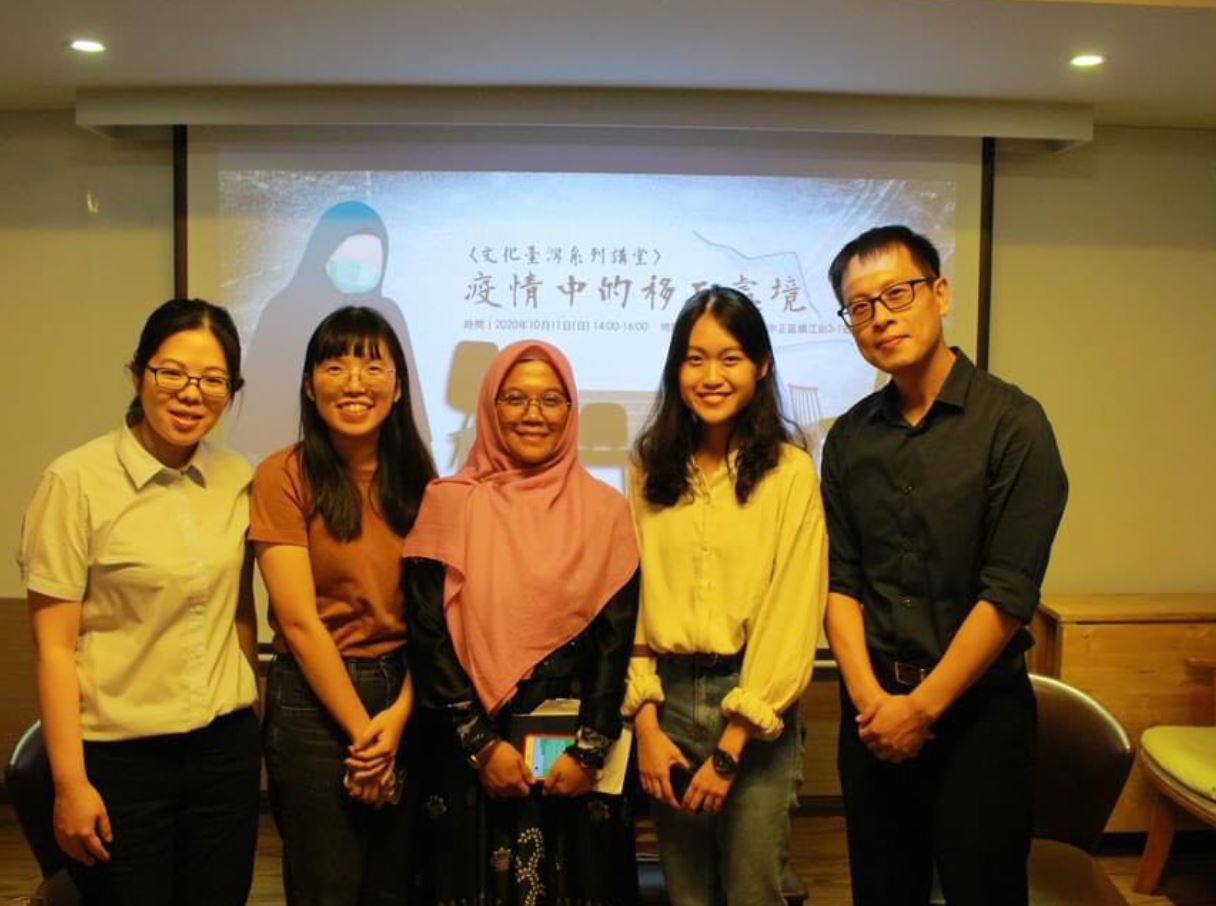

Let Them Speak Exploring Transnational Labor and Human Rights through the Taiwan Literature Award for Migrants
In continuation of the 2019 "Penned by Migrant Workers" project, the 2020 "Let Them Speak" invites film producers in Taiwan to engage in discourse on topics found in the Taiwan Literature Award for Migrants with social workers, allowing migrant workers to speak for themselves.
The Taiwan Literature Award for Migrants spotlights literary works on Southeast Asian immigrants and migrant workers, presenting the diverse cultural impacts and life experiences faced by migrant workers. Topics such as intercultural marriage, labor conditions, and equality in human rights are difficult questions that Taiwan’s society must learn to answer. The 2020 project included two lectures and four screening panels at the Taiwan Film Institute and independent bookstores to galvanize audiences of art & culture to care about labor topics regarding migrant workers, which has become a critical issue that many writers and film producers are now keenly concerned with. The themes for the lectures were "Migrant Workers in the Pandemic" and "Cursed Tales − Why Only Men Remain in the Hometowns of Migrant Workers?" Films selected for screening included Nine Shots (a drama short about the death of a Vietnamese migrant worker), Sunday Beauty Queen (a documentary on beauty pageants for Filipino migrant workers), Merah (a drama short adapted from a Taiwan Literature Award for Migrants piece), and The Lucky Woman (a documentary on migrant workers escaping). Having long devoted itself to the migrant worker community, the Southeast Asia Educational, Scientific and Cultural Association listens to the experiences of migrant workers and uses it to drive discussions on human rights to complement the literary works but to also think critically about the life experiences we share on this island together.
 Southeast Asia Educational, Scientific and Cultural Association
Southeast Asia Educational, Scientific and Cultural Association
Since launching the Taiwan Literature Award for Migrants in 2014, the Association has consistently encouraged literary works spotlighting new immigrants and migrant workers to present stories on being foreigners in a strange land (migrant workers), having two homelands (new immigrants), and multi-lineage (children of immigrants).






